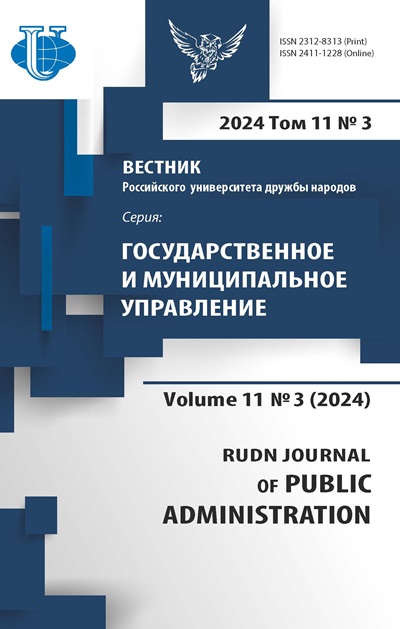Synergetic effect of SMM management in the context of media education environment formation: Strategies and trends
- Authors: Ovechkina A.Y.1, Lagutkina M.D.2, Zayec V.R.2
-
Affiliations:
- Moscow City University
- RUDN University
- Issue: Vol 11, No 3 (2024)
- Pages: 344-352
- Section: MEDIA EDUCATION MANAGEMENT
- URL: https://journals.rudn.ru/public-administration/article/view/41640
- DOI: https://doi.org/10.22363/2312-8313-2024-11-3-344-352
- EDN: https://elibrary.ru/BVNYLB
Cite item
Full Text
Abstract
This research explores the impact of SMM management on the formation of a media education environment in educational organizations, using the “Media сlass in Moscow school” project as an example. The analysis covers SMM strategies, including the use of various content formats, collaborations, live broadcasts, and situational marketing. A synergistic effect was identified, resulting in increased audience engagement and improved educational outcomes by integrating educational and marketing goals. The research results demonstrate that the successful application of SMM strategies fosters the creation of an interactive, motivating educational environment, which in turn enhances students’ digital literacy and media competencies. The significance of this study lies in identifying the key success factors for SMM in education, which can assist educational institutions in effectively utilizing social media to improve the learning process.
About the authors
Alexandra Yu. Ovechkina
Moscow City University
Author for correspondence.
Email: ovechkinaay@mgpu.ru
ORCID iD: 0009-0007-9891-4706
Specialist of the Institute of Specialized Training Development, Liberal Arts in Prevocational Education
6A Vorontsovskaya st., bldg. 1, Moscow, Russian Federation, 109044Margarita D. Lagutkina
RUDN University
Email: lagutara@yandex.ru
ORCID iD: 0000-0003-2830-6274
Associate Professor of the Department of Foreign Languages
6 Miklukho-Maklaya st., Moscow, Russian Federation, 117198Victoria R. Zayec
RUDN University
Email: 1132231797@rudn.ru
ORCID iD: 0009-0000-1385-9517
Student of the Department of Foreign Languages
6 Miklukho-Maklaya st., Moscow, Russian Federation, 117198References
- Belousenko DV. Using social networks in promoting educational services. Molodoi uchenyi. 2018;45(231):55–58. (In Russ.).
- Plotnikova YR. Specifics of SMM in the field of additional education. Molodoi uchenyi. 2023;41.1(488.1):22–23. (In Russ.).
- Bukaev AA. Using social networks in the educational process. Innovatsii v nauke. 2015;(42):120–126. (In Russ.).
- Bogdanova DI. Integration of social networks into the educational process. Innovatsionnaya ekonomika i menedzhment: metody i tekhnologii. 2021:29–35. (In Russ.).
- Kas’yanenko TG. A systematic view on synergy: definition, typology, and sources of synergistic effect. Rossiyskoe predprinimatel’stvo. 2017;24(18):4035–4050. (In Russ.). https://doi.org/10.18334/rp.18.24.38580
- Bitkov LA. Brave new world of social networks, or how public pages kill civic journalism and give birth to niche communities. Vestnik Chelyabinsk. gos. un-ta. 2013;20(311):22–24. (In Russ.).
- Shcherbakov S. Guerrilla marketing in social networks. a tool for exploiting an SMM manager. 2-e izd. SPb.: Piter; 2017. 320 p. (In Russ.).
- Kosheleva NI. Media educational environment as an important component of a modern university. Molodoi uchenyi. 2011;4(27):91–93. (In Russ.).
- Tekut’eva IA. Advantages of the social network “VKontakte” for promoting an information website in Russia. Mediasreda. 2017;(12):270–275. (In Russ.).
- Fedorova EA. Social networks as the most effective tool for promoting an organization. Medicine. Sociology. Philosophy. Applied research. 2018:109–112. (In Russ.).
- Bubnova YuA. Main theories of media education. Crede Experto: transport, obshchestvo, obrazovanie, yazyk. 2017;1(12). (In Russ.).
















